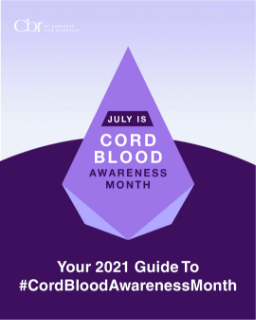Congratulations! You’re doing all the right things an expectant mom can do to take care of your baby. But in all the excitement of your second trimester, it’s easy to forget something just as important: taking care of yourself. Your physical and emotional needs are changing now and how you manage them needs to change, too.
Taking pregnancy self-care to the next level
The fundamentals of good self-care during pregnancy are pretty clear:
Follow your care provider’s advice
Eat well and take your supplements
Stay hydrated
Keep active
Get plenty of rest
Keeping your head in a healthy place while pregnant in today’s fast-paced, mile-a-minute world often takes more than sticking to the basics. Here are a few underrated ideas to help you breeze through to your big day.
Stay connected
Regularly checking in with your support system – whether that’s your partner, family, midwife, or bestie – is an important part of pregnancy self-care. Letting others know what’s going on in your life, the ups and the downs, is a good way for you to keep tabs on how you’re doing. Scheduling regular times to meet or call to share your feelings, questions, and concerns with those in your circle who will really listen helps. And, if you need something, it’s the perfect time to ask.
Set realistic goals
You have big plans for the million and one things you want to do before your baby arrives. But getting overly ambitious with your “to-do” list is the perfect formula for adding unwanted stress to your life. Remember, you’re just one person and you’re pregnant. Focus on the essentials… and knowing when you need to take it easy is definitely an essential. Nice-to-haves are fine if time and your sanity allows.
Tap into the benefits of a massage
Prenatal massages are a great way to relieve the anxiety and stress of pregnancy, not to mention all the aches and back pains. There are benefits for baby, too. Studies show a link between massages and better birth outcomes.1
As beneficial as prenatal massages may be to your self-care regimen, it is absolutely essential to get your physician’s OK first and then work with a massage therapist who specializes in prenatal massages. Certain safe practices must be followed when getting massages during pregnancy.
The power of “No”
Just because you’re that amazing person who everyone knows will say “yes” to everything they ask of you doesn’t mean you have to keep living like that. Pregnancy is a perfect time to learn the power of saying, “No.” Set some boundaries to protect your time, head, and health. If an “ask” is not essential or doesn’t improve your life in some way, it’s perfectly OK to decline guilt-free and with no questions asked.
Do a weekly digital detox
The outside world is too much with us these days, especially when you’re expecting. It’s easy to feel overwhelmed by today’s relentless barrage of emails, social media, and breaking news stories. Set aside one day a week for a digital detox and use that time to connect with friends and family face-to-face, take care of baby-related projects, or just sit back and reflect on your amazing journey
Schedule naptime
Pregnancy can be exhausting, especially if you don’t get a solid eight hours of sleep at night. Busy as you are, it’s good to block 30 minutes of me-time on your schedule every day for a cat nap. You’ll wake up recharged and ready to go. Feel like a second nap later in the day? Go for it. You’re the boss.
Meet with a therapist
Feeling down during pregnancy is common. It’s all just a question of how down you feel and for how long. Family, friends, and even some medical professionals want to chalk up an expectant mother’s persistent low mood, lack of motivation, and feelings of hopelessness to hormonal changes that will soon pass. But sometimes, it’s something more serious.
Up to 20% of expectant mothers experience the “pregnancy blues”2 - which really should be called by its true name, “depression.” Symptoms of pregnancy-related depression to look out for include:3
Feeling confused, sad, or guilty
Having trouble sleeping
Feeling intense frustration
Changes in appetite
Having a hard time focusing
Lack of energy
Crying for no reason
Loss of interest in activities you normally enjoy
It’s important to seek out help from a qualified mental health professional if any of these symptoms last more than a week or two.
Trust your instincts on whether your feelings are normal for you. Untreated depression during pregnancy can be dangerous for mother and baby. It may lead to miscarriage, preterm delivery, a low birth weight, and is often a precursor to postpartum depression.4
One benefit of finding a good therapist now is that it makes it easier to get support later if you experience postpartum depression or if you just need a friendly ear to unload on during the wild, emotional roller coaster ride that is parenthood.
Make self-care a priority
Remember, self-care is not a fad or a self-indulgent trend. It’s a major part of living and enjoying life to its fullest. This is especially true during pregnancy when the decisions you make affect both you and your baby. Including self-care as a regular part of your day will help you fully appreciate this amazing time of growth and change.
Prioritizing your family’s health and wellbeing
An important part of self-care is preparing for the future. One of the best ways to get added peace of mind about your growing family’s future health is to preserve your baby’s newborn stem cells. Learn about the amazing healing potential found in your baby’s umbilical cord.
Disclaimer: This information is for educational purposes only. Please consult your healthcare provider directly for medical advice, diagnoses, and treatments. If you have specific questions or concerns about your health or the health of your baby, consult your physician.
1. Field T. Pregnancy and labor massage. Expert Review of Obstetrics & Gynecology. 2010;5(2):177-181. doi:10.1586/eog.10.12.
2. Contemporary Psychoanalysis in Action. “Pregnancy Blues.” Psychology Today. 30 May 2017. https://www.psychologytoday.com/us/blog/contemporary-psychoanalysis-in-action/201705/pregnancy-blues
3. “Depression in pregnant women and mothers: How it affects you and your child.” CaringforKids.cps.ca. July 2020, https://caringforkids.cps.ca/handouts/pregnancy-and-babies/depression_in_pregnant_women_and_mothers.
4. “Depression in pregnant women and mothers: How it affects you and your child.” CaringforKids.cps.ca. July 2020, https://caringforkids.cps.ca/handouts/pregnancy-and-babies/depression_in_pregnant_women_and_mothers
MORE ARTICLES
LEAVE A REPLY
Your email address will not be published. Required fields are marked *.

 My Account
My Account









0 Comments 7 totally underrated pregnancy self-care tips